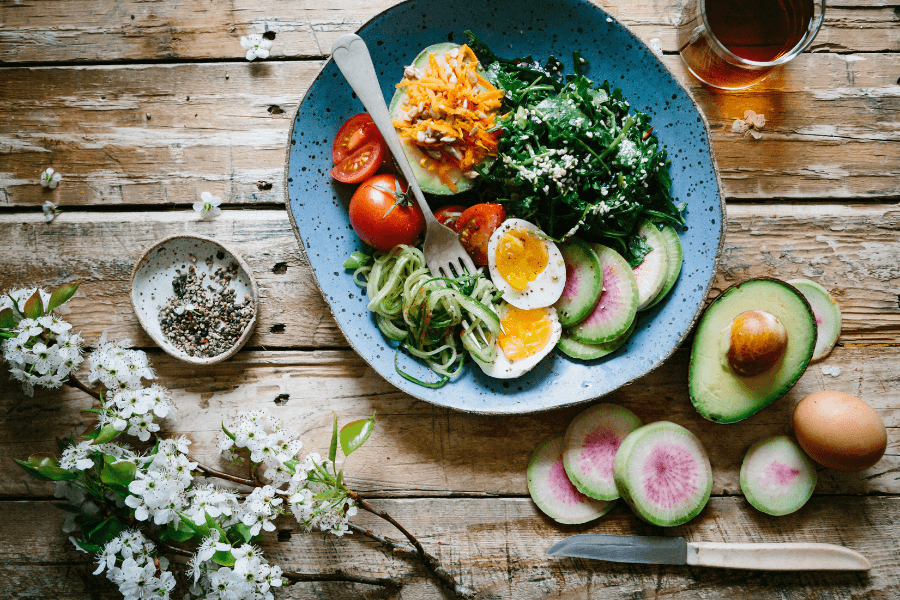
From Immune Boosters to Organic Ingredients, Demand for Wellness Products is on the Rise
Consumers have far more time on their hands during the COVID-19 pandemic and many are using this time to focus on their health, wellness, and nutrition. In fact, focusing on your health may be more important than ever as the Global Nutrition Report says that improper nutrition weakens the immune system and increases the risk of severe illness caused by the virus. Plus, many people can no longer use the excuse of not having enough time to pay attention to what they are eating, buying, and doing to take care of themselves. Now is the perfect time for consumers to educate themselves and choose food and health items that are good for the environment and for their own nutrition.
Prevention with Supplements and Immunity Products
With concerns of COVID-19, people seem to be paying more attention to products and supplements that will boost their immunity. Senior Director of Grocery and Natural Living at Fresh Thyme Farmers, Jonathan Lawrence, claims that sales of immunity products have seen a major spike with the COVID-19 pandemic. The Nutrition Business Journal agrees saying they are predicting to see a 16 percent growth in cold, flu, and immunity products in 2020. In addition to immunity products, dietary supplements in the form of powders, shots, and gummies have become a popular way for people to improve their health. Joan Driggs, Vice President of Thought Leadership and Content for market research company IRI, believes people are turning to supplements to give them a sense of control during these uncertain times. It also may be possible that the increase in supplement sales is due to the job loss and negative financial impacts caused by the pandemic. The manager of Scientific Affairs for The Vitamin Shoppe, Brian Tanzer, believes people may be using supplements to fill gaps in their nutrition caused by not having access to nutritious foods.
Popularity of Natural and Organic Ingredients
An easy way for consumers to take care of their health is to look for natural and organic ingredients. A study done by L.E.K. reports that two-thirds of consumer food purchases in 2019 were positively influenced by no artificial ingredients, no preservatives, all natural, and locally grown or raised. Packaged Facts says organic foods are a popular area of focus with eight in 10 consumers purchasing some form of organic food in 2019. Their research shows that 29 percent of U.S. households are regular organic consumers. An article for Mind Body Green says consumers are choosing to eat organic foods due to benefits such as reduced exposure to chemicals, more nutritious or vitamin-enriched fruits and vegetables, higher levels of omega-3 fatty acids, organic food is GMO-free, and organic food may be better for the environment. Food ingredient manufacturer Symrise claims that the COVID-19 pandemic accelerated the consumer movement toward natural products and ingredients. Symrise says that foods in the natural category include foods that are minimally processed, have clean labels, have ethical supply chains, and are environmental friendly.

Clean Labeling Trend
Labels on food and other products can be confusing and misleading to consumers. Packaging that claims an item is healthy and safe, may not be at all! It is because of misleading labels and packaging that the clean label trend continues to grow. Taste and nutrition company Kerry believes vulnerability created by the pandemic caused the clean label trend to accelerate saying that consumers feel a sense of control by knowing what is in their food. A study conducted by Ingredion found that 82 percent of consumers think recognizing the ingredients in foods and beverages they purchase is important. They also found that 81 percent of consumers prefer a simple and small ingredient list. According to Innova Market Insights, 91 percent of consumers in the U.S. believe food and beverage options with recognizable ingredients are healthier.
Conscious Consumption
With many people at home having easier access to the food in their fridge, conscious consumption has become an increasing trend. According to Accenture COVID-19 research, consumer concern for ethical consumption has grown as a result of the pandemic. The research showed that around 65 percent of the 3,000 respondents claimed they are focusing on limiting waste from food. It may be easy to mindlessly reach for a snack out of boredom, but professionals such as Dr. Brian Wansink believe there are mindful solutions. According to his research, Dr. Wansink says that people make hundreds of food decisions every day and are unaware of most of them. Avoiding mindless snacking can be as simple as making sure each time you snack is a mindful decision. Besides being healthier, many people are practicing conscious consumption for the environment. According to the United States Environmental Protection Agency (EPA), about 68 percent of food waste ended up in landfills or combustion facilities in 2018. The EPA claims that reducing food waste reduces methane emissions from landfills and prevents pollution involved in the growing, manufacturing, transporting, and selling of food.
Taking Care of Mental Health
Taking care of health, preventing getting sick, and financial concerns are among the many reasons the COVID-19 had caused a large amount of stress. While it is important to take care of your physical health, it is also important to take care of your mental health. The Center of Disease Control (CDC) says the way people respond to stress during COVID-19 may depend on a person’s background, social support, financial situation, health and emotion background, community, and more. According to the National Alliance on Mental Health (NAMI), an increase in stress and anxiety due to COVID-19 is common and normal. Some of the things NAMI recommends when someone is experiencing anxiety due to the pandemic include following healthy daily routines, practicing to relax in the present moment, doing meaningful things with your free time, and staying connected with others to maintain your social networks. Though we don’t have much control over what will happen next during the pandemic, it is important to take control of our health and wellness.

